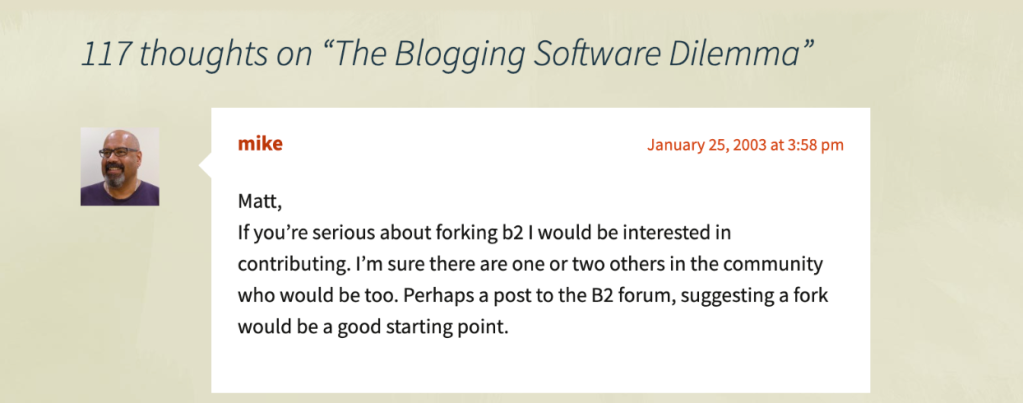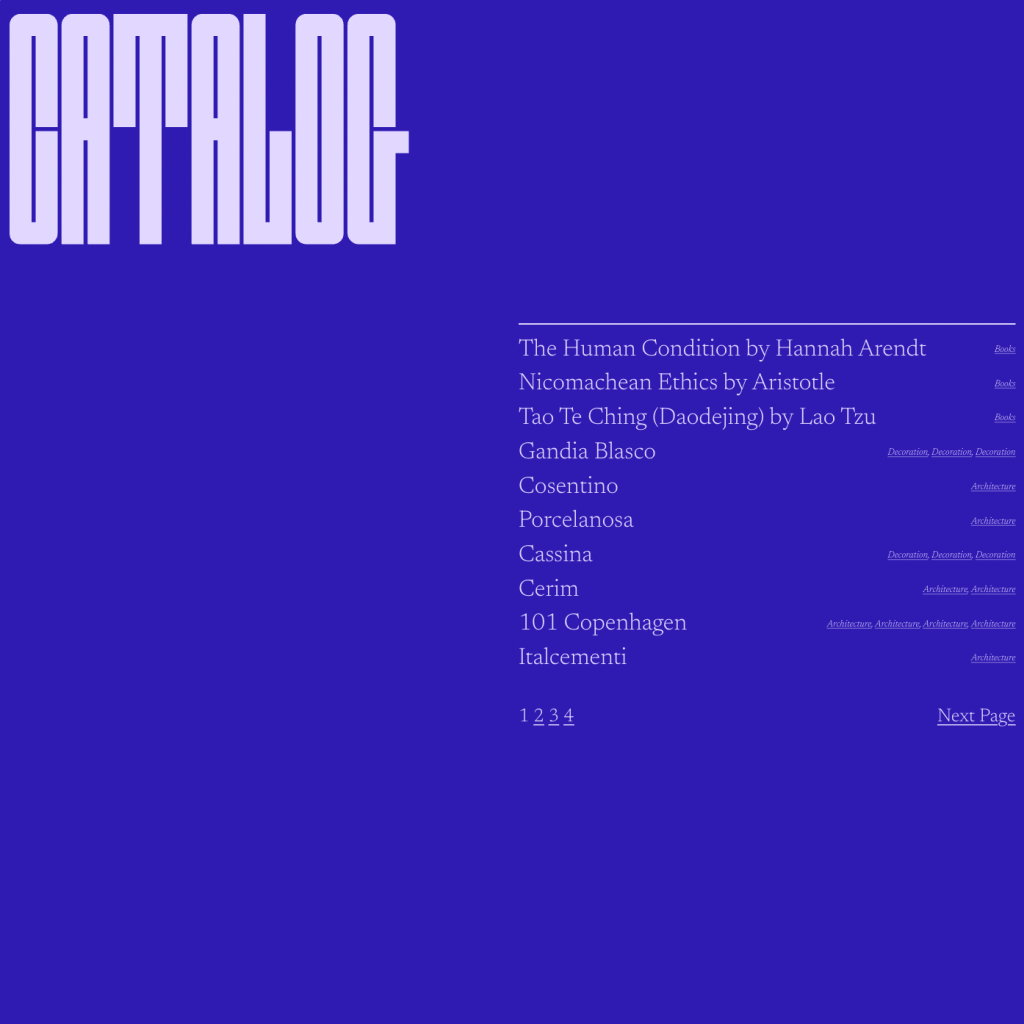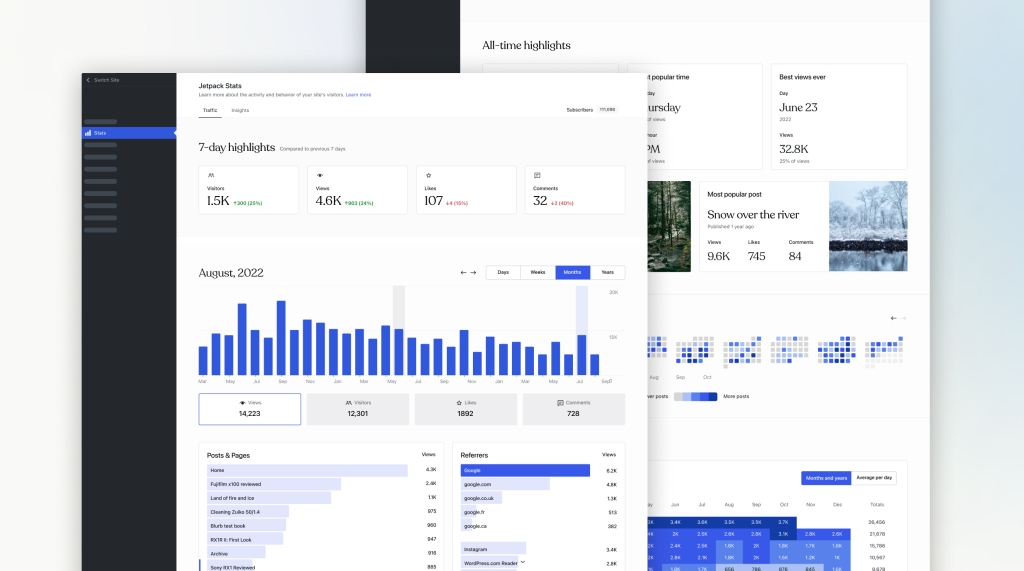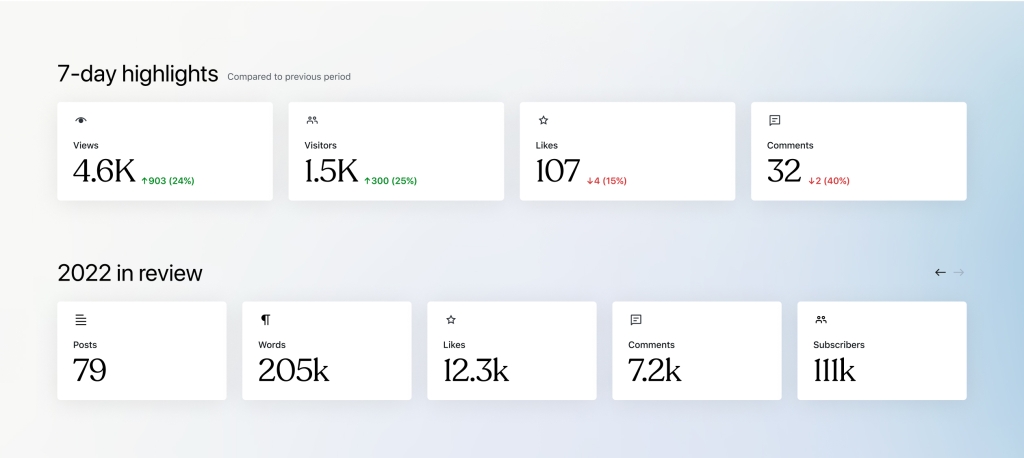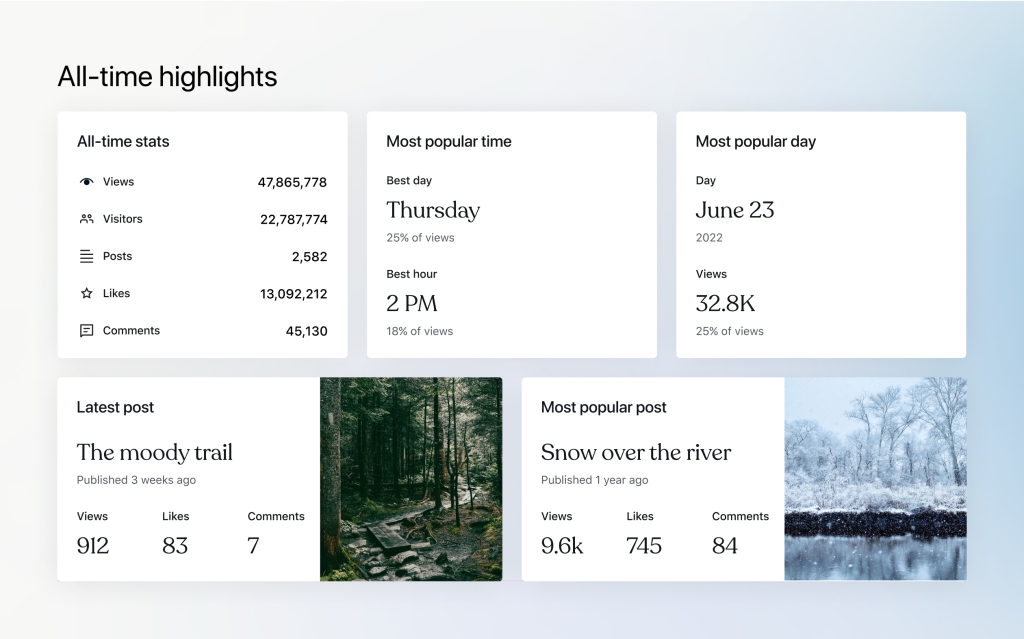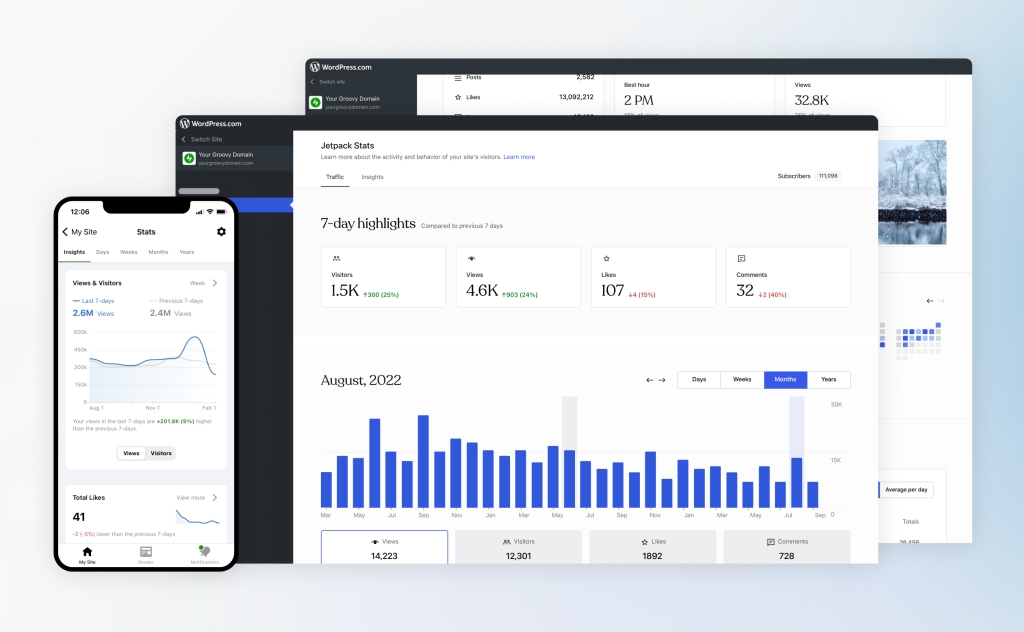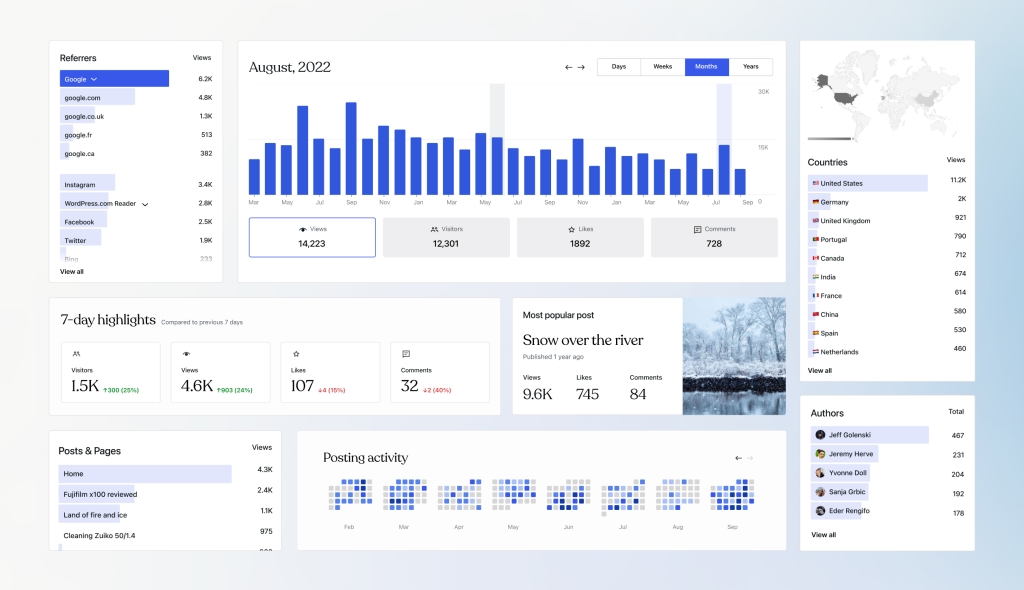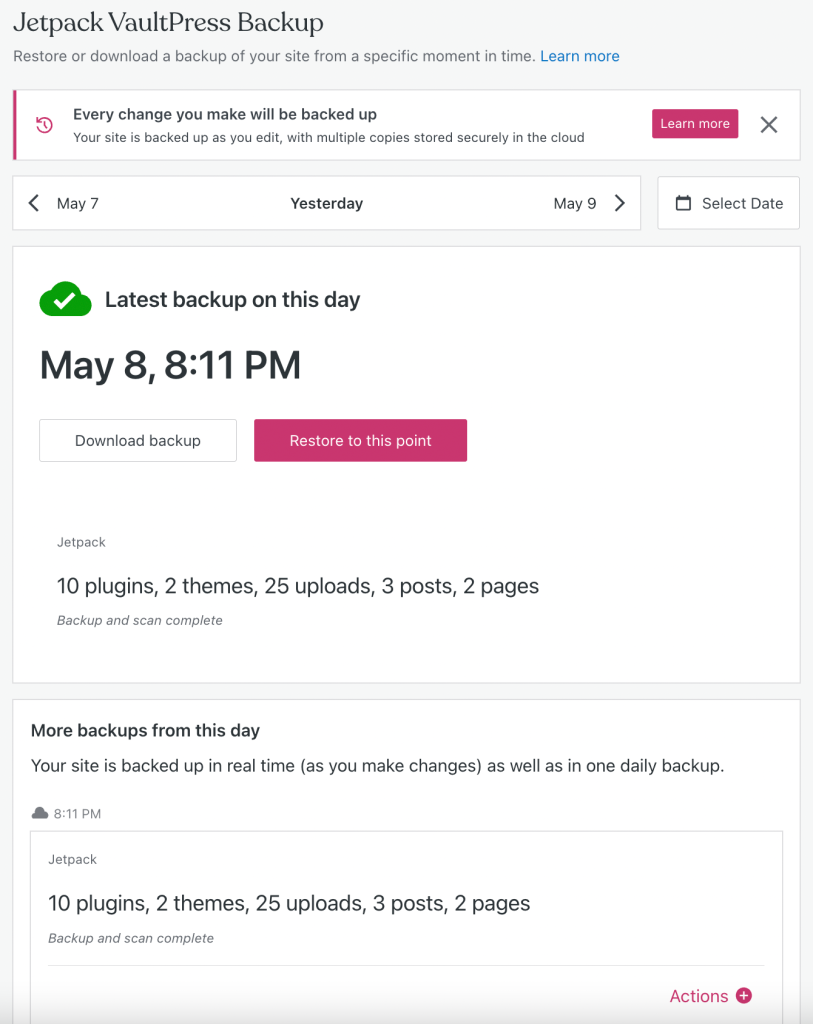Join guest host Rich Tabor and WordPress Playground innovator Adam Zielinski as they discuss the capabilities and promise of WP Playground in episode 56 of the WordPress Briefing. Stay tuned for your small list of big things coming up in the next two weeks.
Have a question you’d like answered? You can submit them to wpbriefing@wordpress.org, either written or as a voice recording.
Credits
Host: Josepha Haden Chomphosy
Guests: Rich Tabor and Adam Zielinski
Editor: Dustin Hartzler
Logo: Javier Arce
Production: Brett McSherry and Nicholas Garofalo
Song: Fearless First by Kevin MacLeod
Show Notes
Transcript
[Josepha Haden Chomphosy Haden Chomphosy 00:00:00]
(Intro music)
Hello everyone, and welcome to the WordPress Briefing, the podcast where you can catch quick explanations of the ideas behind the WordPress Open Source project, some insight into the community that supports it, and get a small list of big things coming up in the next two weeks. I’m your host, Josepha Haden Chomphosy. Here we go.
(Intro continues)
[Josepha Haden Chomphosy Haden Chomphosy 00:00:40]
Today we’re gonna spend a little time talking about WP Playground. This is a project that debuted at State of the Word in December 2022, but it was demoed for me about a month prior in November.
I was, and remain, absolutely floored by the potential future applications, as well as the innovative thinking behind it. So I’ve invited a couple of excellent WordPress futurists to the show today so that we can listen in on their conversation.
Welcome guys.
[Rich Tabor 00:01:07]
Hey everyone, I’m Rich Tabor, and I’m here today with Adam Zielinski to talk about WordPress Playground. So for those of you who don’t know what WordPress Playground is, can you tell us a little bit more about it, Adam?
[Adam Zielinski 00:01:18]
Absolutely. WordPress Playground is WordPress that works in your browser like there’s no server with PHP or database like there’s just your browser and JavaScript, and you can run it in so many more places that we’ll all get to. For example, I just came back from WordCamp Gliwice, where on a Contributor Day, a couple of developers got set up with WordPress in just a couple of minutes, whereas normally, it can take hours to do that.
[Rich Tabor 00:01:44]
Yeah, that’s, that’s pretty impressive. Do you think that, particularly for WordCamps and other demo-type areas, this would be something that’s very useful? Or what do you think would be the other problems that could be solved with WordPress Playground?
[Adam Zielinski 00:01:55]
Playground solves one primary problem, and that is WordPress is pretty difficult to get started with. I’m not even talking about creating your website, but let’s say, someone told you there’s this WordPress thing that you should try. Well, you Google for it, and you find installation instructions, and there’s like three hours of work for you there.
So then maybe you’ll find a hosting company, and you have to pay some money. So with WordPress Playground, you can actually try it for free because there’s no cost to run it. It just runs on your device. If you’re a developer, and you want to start learning WordPress, normally you have to go through quite an extensive setup process, and there are some tools to make it easier, but maybe there’s still friction like you have to even own a computer, like a PC device or a Mac. Playground can run on your phone, and it can power interactive tutorials that you can use and just start learning there and there with zero setup.
Like if you work on a product team and someone asks you to test a code change, with Playground you can just click a link and test it with no infrastructure behind it. And if you’re a company creating a plugin, you can just show your plugin in a live demo to people. And this isn’t something many plugins are doing because it’s quite hard to get a live demo set up.
[Rich Tabor 00:03:12]
Ah, that’s pretty impressive. So, you know, amongst like tutorials, code changes for developer environments, the mobile application running, do you think that, since there’s such a wide brevity of ideas that WordPress Playground can kind of plug into, would this be more of a developer tool?
Is that right? Or is Playground more of a like a click and play-type application that can run anywhere and demo anything?
[Adam Zielinski 00:03:36]
I’d say it’s both, but it’s more transparent for the users. So there are a whole lot of things you can do with Playground as a developer, as I just mentioned. But who are you doing these things for? Well, some of them are for the users, as in live demos, or there’s a WordCamp Europe coming, and I know some people are doing workshops there. They are going to use Playground to get everyone set up. So now that’s, well, maybe a workshop that teaches you how to build a theme, for example, right? Now you can just get started without any setup process. So there’s both, it’s very useful for development teams, and it’s very useful for them to build stuff for the final users.
[Rich Tabor 00:04:21]
That’s great. I know you, and I have probably both been in the same scenario at WordCamps when you’re trying to get dev environments set up, and it takes, you know, the better half of the workshop to get to step one. So this is really gonna be interesting to see it, especially at WordCamp Europe, and to see it getting into action.
Are you planning on going to WordCamp Europe this year?
[Adam Zielinski 00:04:39]
Absolutely, I will have a table at Contributor Day, a WordPress Playground table. So yeah, everyone’s invited to come over. I’ll show you a lot of cool stuff. And then at WP Connect on Saturday at 10:00 AM, there will be a WordPress Playground session where you’ll be able to learn more and see some cool demos.
And this will be a conversational format, so we’ll just have a nice chat.
[Rich Tabor 00:05:01]
Super cool. So how else can people find out a little bit more info about Playground and perhaps even get involved and contribute to the project?
[Adam Zielinski 00:05:08]
There’s a developer.WordPress.org/playground website. There’s a link in a show notes where you’ll be able, like this is the perfect entry point to the entire rabbit hole of WordPress Playground.
There’s a quite a few projects under the WordPress Playground umbrella, and they all live in a single GitHub repository where you can just find any issue that interests if you want to contribute and just start contributing. Also, there’s a Slack channel in WordPress org space called #meta-playground, and I highly encourage everyone interested in coming over to say hi.
And probably one of the best places to ask questions and get acquainted with the community.
[Rich Tabor 00:05:54]
Oh, that’s great; I’m very intrigued about the project overall. I think that there’s an immense amount of potential, for WordPress Playground. Just last question here, like, where do you see the future of this project going? What is the most interesting application that hasn’t been done yet, or the things that are really gonna be the next level in unlocking Playground for everyone?
[Adam Zielinski 00:06:12]
There’s quite a few. Imagine being able to go to WordPress.org and have a WordPress demo right then and there without having to download anything. Then you customize it, and you have a button to host your website anywhere or just to download it.
Imagine having a live preview for all the themes and plugins in the directory and even in WordPress core, but these are sooner than later. Maybe like, let’s talk more grandiose, shall we? So there’s this term, 1 billion new users coming online in the next, like in the nearest future, and plenty of them doesn’t even own a desktop device. Maybe they have a mobile phone, maybe they have a tablet, maybe we’re talking about a young, prospective developer somewhere. And currently, if you don’t own a desktop device, you cannot contribute to the WordPress plugin ecosystem at all.
Like, we’re seeing more and more of creating themes with no code, which is really exciting. But you cannot build the plugin, really. Well, with WordPress Playground. Suddenly you can do development on a mobile device. So development tools and code editors and just the entire suite of things we use as the developers on our desktop of devices like this may come online and be available in your browser.
And if you’re on a train and you just have a phone with you, but you still want to learn, how to build a plugin, well, you’ll be able to do that. Furthermore, there’s a lot of exciting opportunities with ChatGPT, as in, well, here’s a WordPress running entirely on your device. So maybe if that’s connected to ChatGPT, you’ll be able to say, well, I like fish, or like, I want two columns and a photo of a racing car on top of it.
And because ChatGPT can output HTML, we connect the two, and suddenly, you can build a website entirely in your browser using natural language.
[Rich Tabor 00:08:20]
Man, that’s, that’s really interesting. It really does unlock the next, potentially the next like, wave of innovation in the WordPress experience, especially removing all the complications of getting set up and actually seeing what’s there. I think that it really could, be huge for users every day.
[Adam Zielinski 00:08:38]
Oh, here’s one more. So, edge computing is big lately, and it’s going to be bigger in the future. WordPress Playground runs on this new technology called Web Assembly, and it just happened so that a bunch of edge computing providers allows you to run web assembly on their gear. So imagine having WordPress running entirely in edge infrastructure with no centralized server.
Truly decentralized WordPress. It could be big for a well cost of operating, but also for speed, but also even further down in the future. Imagine downloading the actual, you know, even WordPress around time to your device and having the entire website on your phone. So then you know, you’re on a train, you enter a tunnel, but you can still browse that WooCommerce store and add things to your cart even though there is no range at all.
[Rich Tabor 00:09:32]
Wow, that’s, that’s pretty crazy. How far out there do you think something like that is?
[Adam Zielinski 00:09:37]
It’s hard to tell. I mean, technically, it is possible. There are a lot of challenges with regard to privacy, right? And data security for the edge computing case specifically. As for the development tools, there was a Cloud Fest hackathon earlier this year where I was with Daniel Bachhuber, also from Automattic, and we led this exciting project that brought the WordPress development environment into the browser using a couple of editors that are out there, and this is too much of an MVP for actual production use yet, but we got it working, and we build an actual plugin on a phone without internet access.
[Rich Tabor 00:10:19]
Wow. And that was just a hackathon, just hacking at it to see what you can get.
[Adam Zielinski 00:10:23]
Yeah, it was two and a half days.
[Rich Tabor 00:10:25]
Oh, that’s awesome. That’s really cool, man. Well, this has been quite a pleasure. Thanks, Adam, for chatting all about WordPress Playground. Folks, just be sure to check out developer.WordPress.org/playground to explore, experiment, and play with WordPress Playground.
This has been awesome, Adam.
[Adam Zielinski 00:10:43]
Thank you so much for having me, Rich.
[Josepha Haden Chomphosy 00:10:45]
What a remarkable new way of working with and experiencing WordPress. I would love to be able to find ways across the project and ecosystem to help folks see what they’re getting into before they get into it, but also, who knows what the future holds for that project. Keep an eye on it.
(Musical interlude)
[Josepha Haden Chomphosy 00:11:10]
That brings us to our small list of big things happening right now in the WordPress project. The first one is that the Kim Parel Memorial Scholarship for WordCamp US 2023 is open, and applications for it are the WordPress Foundation will once again be offering that scholarship for Travel to WordCamp US.
It is for specifically for women in technology, women in the WordPress space. I’ll include a link to that in the show notes.
The second thing is WordPress’ 20th anniversary is still coming, as we heard in the last podcast.
So we have reached over 100 events that are scheduled on or around May 27th, which is WordPress’ launch date. There is still time to find your closest location and attend one of those events. And probably, there’s also time to pull together an event of your own. Head on over to wp20.WordPress.net if you would like to see events in your area.
And the third thing is WordCamp US 2023. I realize WordCamp Europe comes before that, but the programming team actually has a really interesting thing that they’re doing this year. They have some changes to the way that they are organizing the event and finding speakers for the event. But as always, they are working very hard to make sure it is an attendee-focused event.
I’m gonna include a link or two to some announcements that are really worthwhile there. Head on over to the podcast page to see those. And that, my friends, is your small list of big things. Thank you for tuning in today for the WordPress Briefing. I’m your host, Josepha Haden Chomphosy. Thanks again to my guests, and I’ll see y’all in a couple of weeks.

